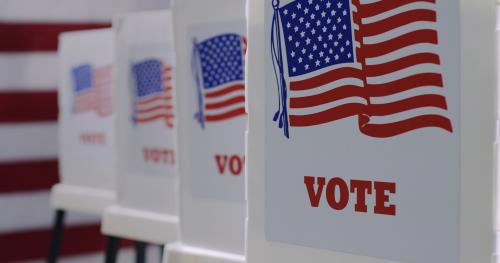A panel of experts from the AEI-Brookings Joint Center for Regulatory Studies today discussed breakthrough technology called Voice over Internet Protocol (VoIP) that allows consumers to make telephone calls over the Internet rather than over the standard switched access phone network. The emergence of this technology and the eagerness of companies such as AT&T, Verizon, and Qwest (as well as cable companies) to expand VoIP’s reach will likely transform the telecommunications industry. The panel discussed policy issues raised by VoIP, including regulatory issues, rules regarding leasing telecommunications facilities to competitors, interconnection policies, and the effect of VoIP on universal service.
In his introductory remarks, AEI-Brookings Joint Center Executive Director Robert Hahn said that VoIP had the potential to “change the course of telecommunications,” but it also presents numerous legal and regulatory dilemmas.
Reed Hundt, a former chairman of the Federal Communications Commission (FCC), thought that VoIP’s promise was overhyped. “I do not think that VoIP is revolutionary,” said Hundt. Instead, he suggested that the future of telecommunications lay with broadband services. “It’s the great shark of the new medium of communications that will devour the old mediums. It’s the fastest growing communication service in American history.”
Former FCC member Harold Furchtgott-Roth outlined the unique regulatory issues that VoIP presents.
“What is different about VoIP is that the government cannot monitor it,” said Furchtgott-Roth, adding that VoIP doesn’t fit any of the traditional conditions justifying regulation and taxation. Although the FCC and the states have traditionally used the “dominant carrier” standard with regards to the regulation of telephone companies, technological and market developments have given consumers numerous service choices, making it more difficult to determine if a carrier is “dominant,” and thus eroding the traditional economic rationale for regulation.
Current FCC Chairman Michael Powell has publicly stated that the burden of proof for regulating VoIP “should be on those who want regulations extended.”
Hundt outlined his vision of how the FCC and states should deal with VoIP’s emergence, rejecting calls for new regulatory rules and the repeal of the 1996 Telecommunications Act. Traditional antitrust laws, Hundt suggested, would suffice.
“We don’t need 21st century rules for telecommunications anymore than we need new amendments to the constitution,” said Hundt.
Hundt did say, however, that the United States desperately needs a long-term strategy to provide broadband to all citizens, and he cited efforts in Japan and South Korea as models. Failure to implement such a strategy, said Hundt, threatened “America’s future in the world of global competition.”
“If we had a [broadband] policy, we could virtually guarantee that we would recoup all the jobs lost in the economy in this current presidency,” said Hundt. “If we had had that plan in 2001, we would not have lost the net two million plus jobs that we have lost.”
Hundt called on the FCC to act quickly and decisively. “This needs to be decided this year by a unanimous vote by the FCC and a vigorous commitment to support that vote all the way to the Supreme Court,” said Hundt.
Robert Litan, director of the AEI-Brookings Joint Center, called VoiP a “big deal” and said it could “see major takeoff.” He recognized the problems that VoIP presented to regulatory structures and service providers, but said he believes that “letting the market place handle this could be a good solution.”
Brookings Senior Fellow Robert Crandall doubted that internet telephony would remain free of regulation, saying that regulation is often used to raise tax moneys to fund “what we consider meaningful social projects.”
“Regulators are not going to give up their favorite constituent groups on whom they’re bestowing this money,” said Crandall.


Commentary
Op-edEvent Summary: The Internet Telephony Revolution: Reality or Hype?
March 10, 2004